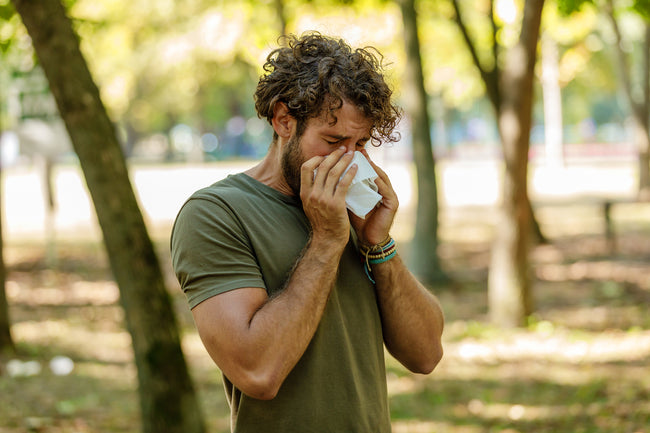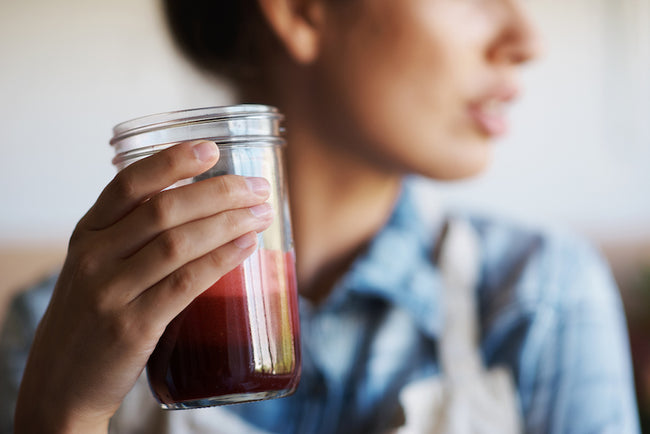School’s back in session, and you’re just starting to get back into the routine. Rushed mornings… same old lunchbox… hurried homework… test anxiety… everyone else’s germs…
It can be hard to keep your kids healthy, happy, and focused with so much going on.
But five simple back-to-school tips can make everyday easier.
And it all starts with a “secret” immune boost you can give your kids (whether they realize it or not!).
- A Daily Dose of Immune-Boosting Probiotics
When school starts up again, so do colds, stomachaches, and other contagious bugs – and kids are experts when it comes to sharing germs. You can cut down on those common back-to-school bugs by super-charging your kids’ immune systems with a daily dose of high quality spore probiotics.
Whether you mix it into their morning oatmeal, sprinkle it into their lunchtime sandwich, blend it into a smoothie at snack time, or just have them swallow the capsule, spore probiotics strengthen your kids’ immune systems just when they need it most. And because spore probiotics aren’t heat or cold sensitive, you can add them into anything your kids will eat, from fresh-baked brownies to hummus and other dips to frozen fruit pops.
By getting your kids’ gut microbiomes (the trillions of bacteria that live in the gut) in healthy balance, spore probiotics may:
- Improve gut health and regularity
- Keep kids healthier during the germy back-to-school season
- Improve mood and reduce anxiety
- Boost brain function
Adding spore probiotics into your kids’ daily routine (whether they know it or not) can help make every day easier on them… and you.
Back-to-school stress can take a toll on your child’s gut microbiome, affecting their overall health. A new study showed that stressed-out kids have lower levels of beneficial bacteria and higher levels of bad (pathogenic) bacteria in their guts. Supplementing with supportive spore probiotics can help keep their guts in healthier balance.
Want to learn more about how spore probiotics can help your kids stay healthy and focused? Click here.
- Scrap the Hand Sanitizer and Encourage Hand Washing
You probably see super-sized hand sanitizer pumps almost everywhere your kids go: classrooms, pediatricians’ offices, even some playgrounds. But sanitizers are only supposed to be used occasionally, when there’s no way to wash your hands… not several times a day every day. Overuse of sanitizers can actually bring on the opposite of what you want: more and stronger germs combined with a weaker immune system.
Today’s hand sanitizers (more than 95% of them) are powered by at least 60% ethyl alcohol. That means your kids are constantly rubbing alcohol on their skin, which can be drying and irritating and weaken their skins’ natural protections against germs. Plus, the germs get killed as the alcohol evaporates, which means kids need to let sticky sanitizer dry for 20 to 30 seconds without rubbing it off on their clothes or it won’t work.
Another problem: For many harmful bacteria, 60% alcohol is more of an annoyance than a death sentence. These bacteria can tolerate the hand sanitizer – it does not kill them. In fact, after hand sanitizers became so popular (around 2004), bacteria became ten times more tolerant to alcohol! Scientists found that using a 70% alcohol mixture did kill off bacteria… but almost all commercial hand sanitizers contain 60% alcohol. (Learn more)
When kids wash their hands with soap and water, bacteria and other pathogens get lifted off their skin and sent down the drain. That’s the best way to get rid of germs and fight the spread of sicknesses… especially during the school day.
- Keep Your Kids Moving
It’s hard for kids (anyone really) to sit still at a desk all day long. Make sure your children have plenty of run around time, and that they actually do some physical activity every day.
There’s plenty of evidence showing that regular physical activity improves attention, academic performance, and executive function (decision-making and problem-solving, for example) in school children. It also helps them maintain a healthy weight and a stronger immune system.
Plus, regular exercise also keeps the gut microbiome in fighting shape. Scientists working on the American Gut Project found that kids who exercised more frequently had higher probiotic populations and a richer diversity of beneficial bacteria in their gut microbiomes.
- Get Your Student in a Solid Sleep Groove
You know how you feel when you don’t get enough sleep – foggy, groggy, irritable, exhausted – and it’s no different for your kids. It’s nearly impossible to take in new information and learn new skills when you haven’t slept. Studies show that better sleep translates into better school performance.
It’s not always easy to get kids settled and sleeping. One surprising source of insomnia: the gut microbiome. Turns out that the bacteria in your child’s gut helps regulate sleep cycles and sleep quality. Rebalancing their gut microbiome with a spore probiotic may help make bedtime easier and let you all sleep more soundly. Other sleep-friendly tips include:
- Establishing a consistent bedtime routine and sticking with it every night for at least two weeks to give it a chance to start working
- Stopping screen time at least one hour before bedtime because the light from screens can interfere with melatonin, the sleep hormone (details here)
- Keeping your child cool, as cooler temperatures allow for deeper sleep
- Using essential oils, such as lavender and Roman chamomile, help the brain and body relax – sprinkle a few drops on your child’s pillowcase or on a cotton ball tucked inside the pillowcase.
- Introduce Prebiotics for a Wealth of Benefits
Prebiotics are special types of dietary fiber that bypass digestion until they get to the colon, home of the gut microbiome. The probiotics (beneficial bacteria) count on prebiotics for food – and when those probiotics don’t get enough prebiotics, bad bacteria can start to take over. Luckily, prebiotics are plentiful in many plant foods like onions, asparagus, and kiwis.
Prebiotics pack a double-boost for your kids’ health. First, the right prebiotics feed only good gut bacteria, helping their young microbiomes stay well balanced. Second, those prebiotics can also improve your kids’ health – especially gut health – all on their own. In fact, a new study found that young kids (aged 3 to 6 years old) who took prebiotic supplements got fewer fevers and sinus infections during cold season along with healthier microbiomes.
If you can’t get your kids to eat enough prebiotic-packed fruits and veggies, go with a precision prebiotic supplement. Be aware that some types of prebiotic supplements may cause gas and bloating. So, you’ll want to look for a precision prebiotic formula that specifically sidesteps those possible effects. That way your child will get all of the benefits without the bellyache.
Supplying your child’s gut microbiome with both beneficial spore probiotics and tummy-safe precision prebiotics can help set the stage for a lifetime of better health… and that means fewer sick days.
Choosing Wisely for Your Child
You can help your child have a more successful school year by supplying them with what they need to stay healthy, focused, and strong… and that all starts with a well-balanced microbiome.
Just Thrive spore probiotics contain four clinically studied strains of spore probiotics… including strains that have been studied extensively in children. A daily dose of Just Thrive spore probiotics can help beneficial gut bacteria flourish for a healthier microbiome.
And to keep all of those beneficial bacteria well fed, try Just Thrive Precision PREbiotic in children over age 4. The specifically selected prebiotics in the formula are proven to not increase gastrointestinal distress, so your child can gain all the benefits without discomfort.
Protect and nourish your child’s microbiome with Just Thrive today… and set them up for a successful school year.









